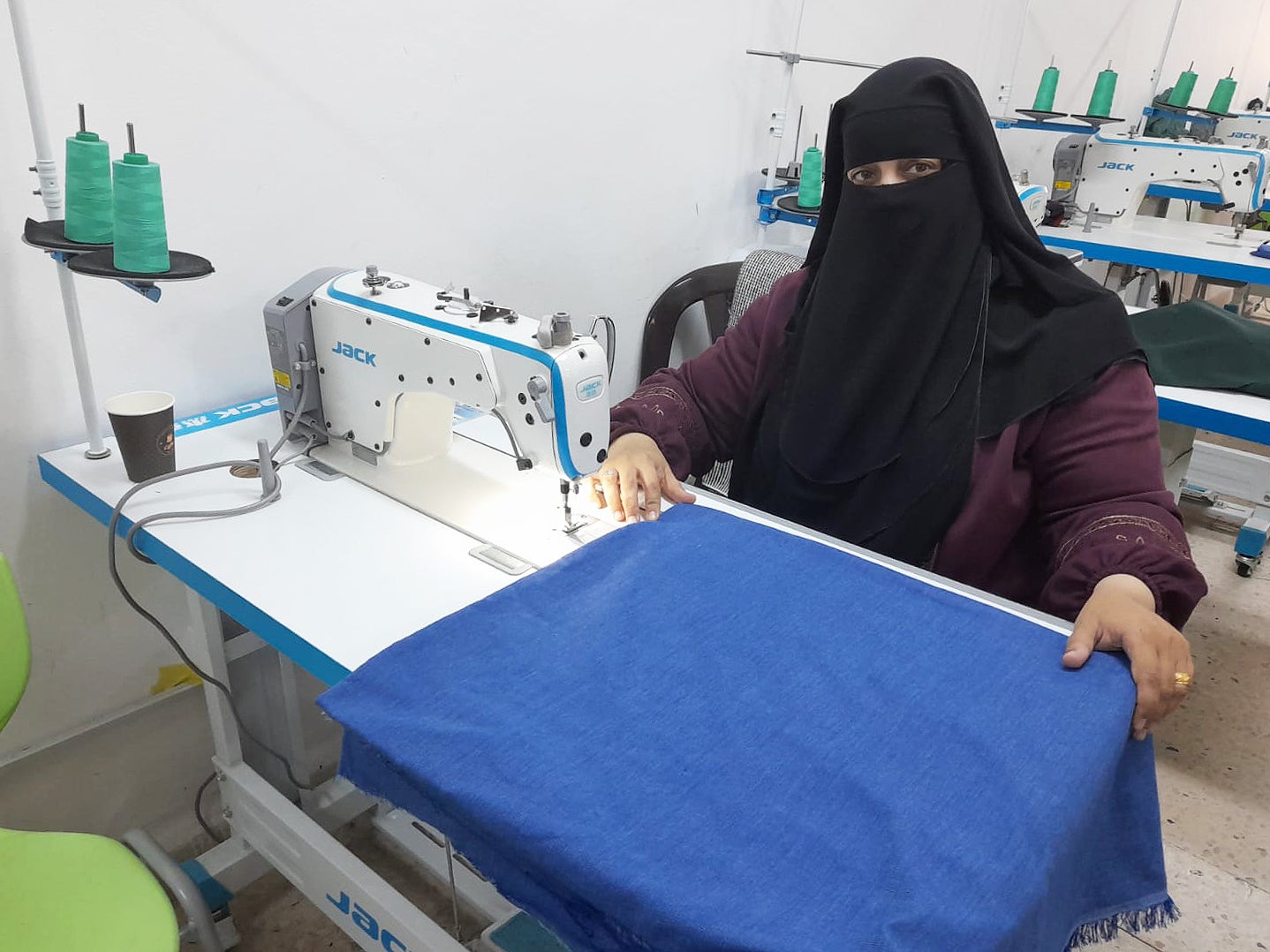Azhar's Journey: A Story of Empowerment and Self-Growth
Date:

Azhar Riyati, a married Jordanian with six children, took the initiative to register at the Oasis Centre with the encouragement of her husband. Having transitioned from dedicating all her time to her family, Azhar, who now serves as a trainer at the centre, initially found it challenging to balance her time between the centre and her family commitments.
"When I first started, I was afraid I wouldn't do a good job. Interacting with staff and participants from different ages and backgrounds made me enjoy my time, overcome fears, get familiar with the equipment, and become more flexible in dealing with others."
Azhar reflects on the transformative experience: "It was a great experience! It helped me and other women develop new skills and become more confident. After completing the programme, I bought a sewing machine and started working from home. Although I'm not earning much now, I am hopeful, especially since my project is still at its beginning and will improve, becoming more well-known."
"Working from home is a great concept for some women. You can take care of your home and kids while still running your own business and earning an income."
Recognized as highly successful by international and national actors for creating safe, inclusive spaces, the Oasis centres have provided crucial cash-for-work, skill development, and early childhood services. UN Women's female-centred approach has notably advanced refugee women's economic autonomy and self-confidence, driving the program's relevance to national response efforts.
Her advice to women is to “Overcome their fears and get out of their comfort zone”. “For housewives, I advise them to educate themselves, always learn something new, and try having their own business. This will change their perception of life and the way they see things."
Azhar's story aligns with the transformative impact of the Oasis centre, showcasing the positive changes facilitated by the European Union (EU) funding through the Regional Trust Fund in Response to the Syrian crisis, the Madad Fund, in partnership with the Ministry of Social Development.